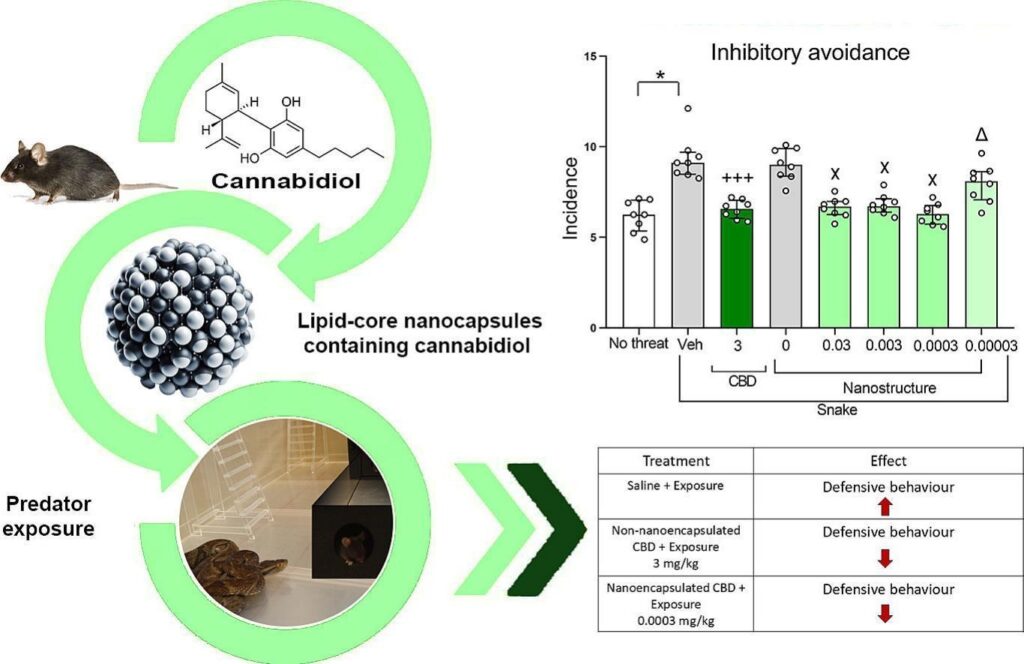A study published today by the International Journal of Pharmaceutics finds that nanoencapsulated cannabidiol (CBD) may significantly reduce panic-like behaviors.
Researchers from the University of São Paulo, the Federal University of Rio Grande do Sul, and the University of Poonch Rawalakot explored how nanoencapsulation—specifically, polymeric lipid core-based technology—affects CBD’s impact on defensive behaviors triggered by exposure to a venomous snake. Mice were introduced to the Bothrops jararaca snake in a validated panic model known as the enriched polygonal arena.
The study compared traditional CBD at a known therapeutic dose (3 mg/kg) with much lower doses of nanoencapsulated CBD. Both forms of CBD reduced defensive behaviors, such as escape attempts and heightened attention to the threat. However, the nanoencapsulated version produced comparable anti-panic effects at significantly reduced doses, suggesting enhanced bioavailability and efficiency.
Additionally, tests using rhodamine-labeled nanoencapsulated CBD showed that the compound successfully crossed the blood–brain barrier, reaching several limbic system regions associated with fear and stress responses.
These results indicate that nanoencapsulation may offer a promising approach for using lower doses of CBD to treat anxiety and panic disorders, potentially minimizing side effects while maintaining efficacy.









